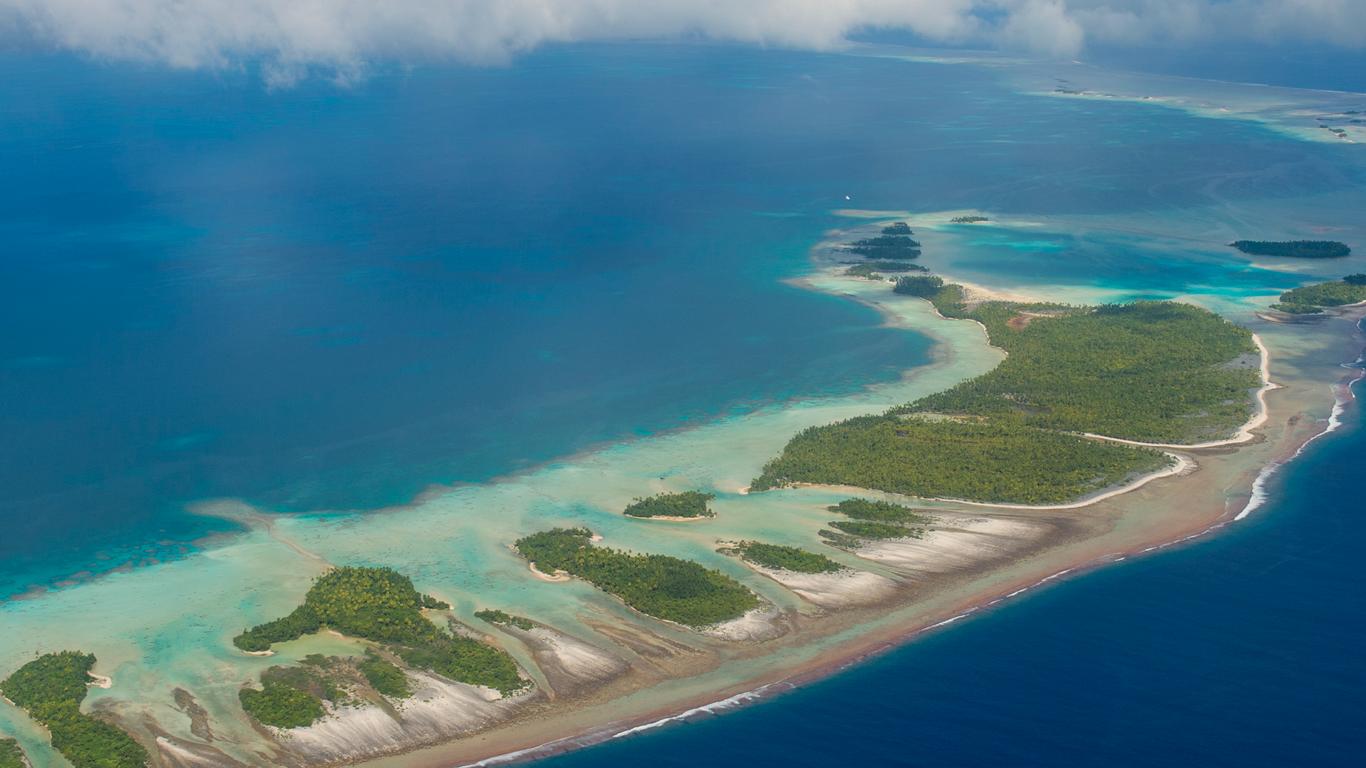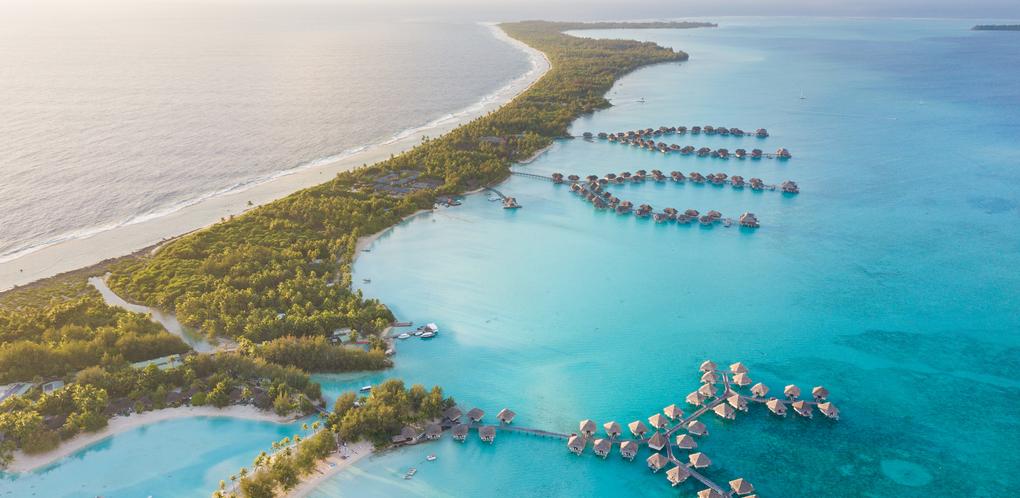
French Polynesia travel guide
French Polynesia Tourism | French Polynesia Guide
You're Going to Love French Polynesia
This country is composed of 118 different islands, which are divided into 6 archipelagos. Be prepared to be stunned by turquoise colored water and lush green nature as you slow down the pace and adapt to the island's laidback culture.

What to do in French Polynesia
1. Go Diving and Snorkeling
Expect to see and swim with turtles, barracuda, dolphins, sharks and manta rays, among other sea creatures.
2. Swim in Bora Bora's Blue Lagoon
This is French Polynesia's most popular island and is a paradisiacal destination for honeymooners. Aside from its blue lagoon, which offers the possibility to undertake a range of waterbased activities, don't miss the chance to go for a jungle hike.
3. Explore Tahiti
The largest island of French Polynesia, Tahiti offers a lot to see, such as the Waterfall Valley, Point Venus, and the Museum of Tahiti and Her Islands to learn more about the archipelagos.
4. Eat Exotic Fruits at Papeete Market
Head to this market for a true island experience. You will find fruits, vegetables and other produce that might be exotic to you, but also locally made crafts, such as souvenirs and handbags.
5. Visit Marae Taputapuatea in Raiatea
This once religious center and temple was declared a UNESCO World Heritage Site in 2017 and features a number of stone structures, including Tikis.
When to visit French Polynesia
The best time to visit French Polynesia is during its driest months, which are between June and August. However, this is also the busiest period, so if you prefer avoiding the crowds and still want to take advantage of pleasant temperatures, consider heading there in the months of May or September.
How to Get to French Polynesia
Entry requirements
Citizens of a number of countries, including those in the EU, are able to enter French Polynesia without a visa and can simply present a valid passport or even an ID card on arrival. For any other country, a visa is required and some can get it on arrival at the airport.
Plane
The most convenient way of getting to French Polynesia is by flying. The local airline is Air Tahiti Nui, which operates nonstop flights to 5 destinations, including Los Angeles, Paris, Auckland and Tokyo. They collaborate with a number of other airlines to offer convenient connections with further destinations. Another local airline, Air Tahiti, operates one international service to and from the Cook Islands.
Boat
There are no regular ferries that travel to French Polynesia. However, cruise ships stop there on an irregular basis.
Popular airports in French Polynesia
Popular airlines serving French Polynesia
Where to stay in French Polynesia
Hotels are a very common option for accommodation, with all international names available on the main islands. If you are looking for something simpler, you can rent a room or a whole furnished bungalow from a local family, some of which include a dinner service.
Where to stay in popular areas of French Polynesia
Most booked hotels in French Polynesia
How to Get Around French Polynesia
Public Transportation
The only island with public transport is Tahiti, with 3 routes of buses providing transport around the island.
Bus
Buses around Tahiti are now all modern and air conditioned, and while they have designated stops and timetables, you can probably still flag one by waving at them if you're in between stops. Services run as frequently as every 15m on weekdays during the day, with some buses stopping for the day at 5:30 pm and reduced services on the weekend. The Greater Pape'ete bus route goes through the airport.
Car
Car rental is possible with various agencies available on the main islands, and rental options include the ability to rent a car for as little as 4h on smaller islands.
Plane
Flying is the most common way of getting around the islands, with flights offered by Air Tahiti. Special passes are available for those wishing to visit a few islands, such as the Bora Bora pass, which covers Bora Bora, Moorea, Raiatea, Huahine and Maupiti. Charter flights are also available with Air Archipel.
Boat
Ferry travel is available between most islands, with connections between Moorea and Tahiti multiple times a day. Cargo boats are also available for those wishing to take their car.
Best car rental deals in French Polynesia
Compact
4 Adults, 2 Bags
$65/day
Compact
4 Adults, 2 Bags
$81/day
The Cost of Living in French Polynesia
The cost of an inexpensive meal in French Polynesia is around 1,100 XPF (10.20 USD), while a mid-range meal will cost around 5,000 XPF (46.50 USD) per person. If you are staying on the main islands, you will easily be able to use credit or debit cards for payments, while cash is the preferred method of payment on smaller islands.